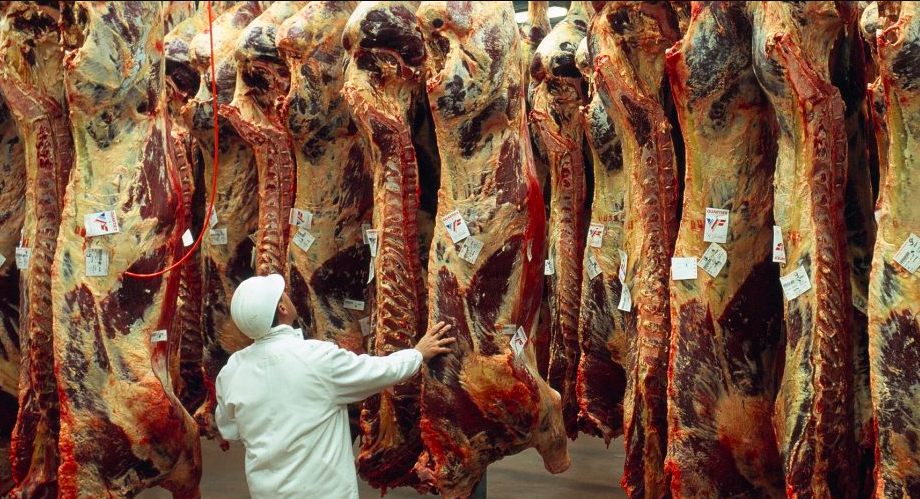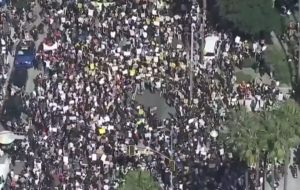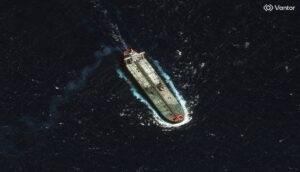
Published 21/11/2024 17:12 | Edited 11/21/2024 20:06
The CEO of Carrefour in France, Alexandre Bompard, announced this Wednesday (20) the suspension of the purchase of meat produced in Mercosur countries to supply the supermarket chain in French territory. The decision, formalized in a letter to the president of the FNSEA (French National Federation of Farmers’ Unions), is justified, according to Bompard, by the failure to meet French standards and requirements for South American products. The Brazilian Ministry of Agriculture and Livestock (Mapa) reacted vehemently to the statements, classifying them as “lies”.
Carrefour França’s decision was harshly criticized by the Brazilian government. In a note released this Thursday (21), the Ministry of Agriculture and Livestock (Mapa) stated that the measure reflects disguised protectionism that harms transparency and competitiveness in international trade.
Brazilian response: leadership and rigor in production
Brazil, the largest exporter of beef and poultry in the world, reaffirmed its commitment to rigorous health standards that guarantee the trust of 160 countries, including the European Union itself, which has been importing and certifying Brazilian meat for more than four decades. According to Mapa, the Brazilian agricultural defense system is robust, meeting the most demanding criteria globally.
“Brazil maintains one of the strictest environmental laws in the world and operates with complete transparency in the production sector”, states the official note. The ministry also highlighted that the country presented to the EU advanced proposals for electronic traceability, in line with the European Union Deforestation Regulation (EUDR), demonstrating commitment to sustainable and traceable production.
Criticism of French protectionism
The Minister of Agriculture, Carlos Fávaro, was emphatic in criticizing Carrefour’s position, suggesting that the measure appears to be part of an “orchestrated action” to hinder the progress of the trade agreement between Mercosur and the European Union. “It is regrettable that protectionist interests are being disguised as technical concerns, without any real basis,” he said.
Fávaro also warned of the negative impact of practices like this on global trade and consumer perception. “Brazil is internationally recognized for the quality of its agricultural products, and we will not accept attempts to tarnish this reputation with unfounded arguments.”
The weight of protectionism in the Mercosur-EU agreement
Carrefour’s decision comes at a time of tension in the negotiations for the Mercosur-European Union agreement. Although countries such as Germany and Spain are in favor of the pact, French opposition is led by agricultural sectors that fear competition from more competitive South American products.
In justifying the boycott, Bompard said he hopes to inspire other retailers to prioritize the French origin of meat. For experts, the declaration reflects protectionism that seeks to shield the French domestic market from foreign products, to the detriment of free trade principles.
Brazilian competitiveness and global challenges
Carrefour’s stance also disregards Brazil’s role as a protagonist in global food security. The country exports high-quality food to several nations, helping to meet the growing global demand for animal protein. Furthermore, Brazilian agriculture is recognized for adopting sustainable practices and advancing in the fight against illegal deforestation.
The attempt to justify the boycott with sanitary and environmental arguments without technical basis not only distorts the facts, but harms multilateral trade negotiations that seek to balance the interests of different regions.
The role of transparency in international trade
By rejecting the accusations, the Brazilian government highlighted the importance of technical criteria and transparency in commercial relations. “Brazil will not accept vain attempts to undermine the recognized quality and safety of its products”, reiterated Mapa.
The dispute reinforces the need to strengthen agreements based on clear rules, which benefit both producers and consumers, avoiding the rollback of protectionist barriers that compromise mutual trust in global trade.
Carrefour’s measure, restricted to the French market, is seen as a symbolic but counterproductive gesture, which could negatively impact commercial relations between the blocs and tarnish the image of one of the biggest players in international trade. Brazil, in turn, continues to defend its leadership in the agricultural sector with transparency and commitment to sustainability.
Impacts and reactions
Carrefour’s decision reflects pressure from French farmers against the agreement, fearing the entry of more competitive agricultural products from Mercosur. French President Emmanuel Macron reaffirmed on Tuesday (19) that he will protect the interests of France’s agricultural sector. “No decision will be taken at the expense of our farmers”, he declared after meeting with President Luiz Inácio Lula da Silva during the G20, in Rio de Janeiro.
On the other hand, the European Union has sought to advance the agreement, with support from countries such as Germany and Spain, interested in increasing their exports of automobiles and industrial products to Mercosur.
Despite resistance, the European Union seeks to formalize the pact by the end of 2024, increasing entry quotas for agricultural products from Mercosur, while increasing its industrial exports. It remains to be seen whether measures like Carrefour’s will influence the future of the treaty.
Source: vermelho.org.br

